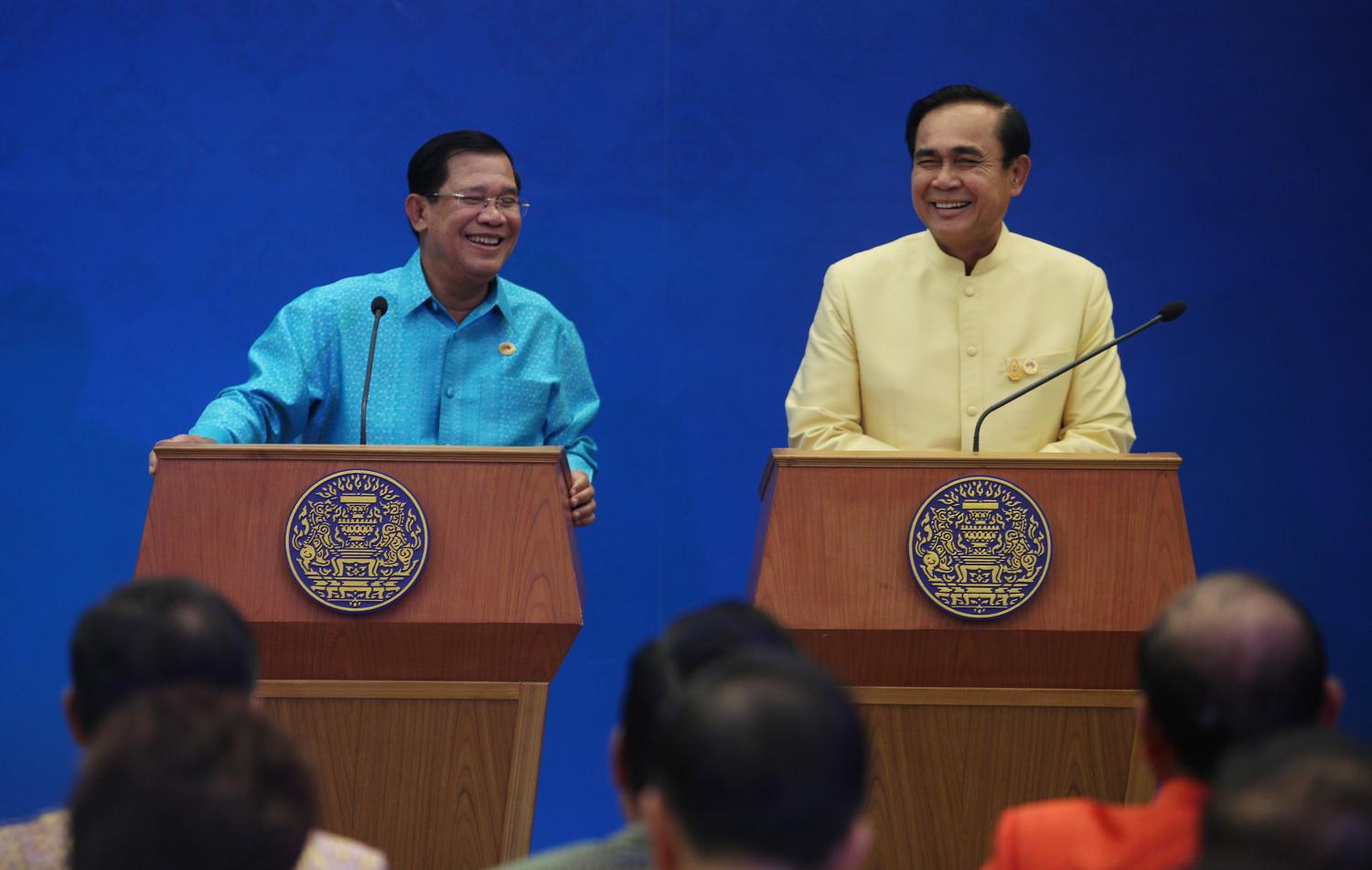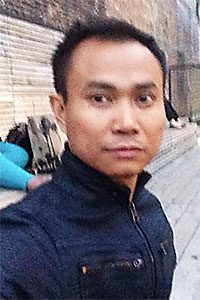
Cambodia may avoid trade sanctions from the EU and US if its government has learnt the art of faking a return to democracy and rule of law from Thailand, which has done its neighbour a huge favour by barring entry to its exiled opposition leaders.
In fact, Thailand is the only "democratic" country in the region that bowed to the request of Prime Minister Hun Sen's government.
Indonesia and Malaysia ignored the demand not to let Cambodian dissidents land, even letting some enter and stay. But that does not seem to have made Thailand a bad guy in the eyes of the West.
"I also came to power through elections," Prime Minister Gen Prayut Chan-o-cha, the 2014 coup-maker, boasted to locals during his recent trip to Ratchaburi province.
Without a doubt, his government must have delivered the same message to western nations, who have bought it -- or perhaps faked their acceptance -- out of relief that the political mess in Thailand seems back to tolerable levels.
That indicates Prime Minister Hun Sen could have softened his crackdown on the opposition Cambodia National Rescue Party (CNRP), which has been so ruthless and rigorous that the West has threatened penalties over the past few years.
Here in Thailand, we cannot lie to ourselves that the political climate is any prettier. It just looks less ugly from the outside.
Suppression of the opposition to the previous and current regimes here has been as worrying as that in Cambodia, except that it is done in a more gradual and subtle way, and the West seems to feel comfortable enough with us.
Looking at the bigger picture, the ruling regimes in both countries have applied similar tactics against their political rivals.
First, they invented a string of new legislation (which, in the case of Thailand, includes a new constitution) and exploited existing laws to help facilitate their political purge and justify their path to power.
Next, they applied the legislation and cited "the rule of law" to justify their actions. All of this was done with the support of certain state organisations in which their influence was already embedded -- in Thailand, through the appointment of their leaders.
Then, there were concerted efforts by individuals and state agencies to exploit "the justice process" so as to have the opposition parties dissolved and their members banned from politics. All of this was and is being done in the name of law.
Prior to Cambodia's general election last year, the country's Supreme Court disbanded the CNRP and banned its senior members from politics for five years. CNRP president Kem Sokha also faces treason charges, which stemmed merely from his stating that he had received political advice from the US.
That has made Cambodia a de facto one-party state. By any legitimate standards, it is no longer a democracy.
Shocked by widespread arrests of CNRP supporters and charges against their leaders, the West finally lost patience and called for a restoration of their political rights.
Thailand had also been a de facto one-party state since the 2014 coup, until the general election in March this year.
The polls could have marked a transition to genuine democratic rule, but the Election Commission instead concocted a much-criticised interpretation of the election law that eventually resulted in party-list MP seats being given undeserved to a bunch of small parties.
That decision helped give the current coalition parties a thin majority in parliament.
Coupled with a new rule under the charter that allows appointed senators to vote for a prime minister, the parties managed to form a government when they should have been in the opposition camp.
Some called it "hybrid-democracy". Others may brand it "hybrid-dictatorship". Like it or not, it is something the international community can swallow.
It also demonstrates the regime's culture of yoo pen, loosely translated as the willingness to compromise and adapt in order to survive or be accepted as part of a community or a group.
Recently, the opposition Future Forward Party (FFP) announced its plan to launch a campaign based on the opposite principle, yoo mai pen, this Saturday to demonstrate its more principled stance.
With such an unforgiving stance, it's no wonder the FFP has become a target of political bullying by the current regime, in an echo of what happened to the CNRP in Cambodia.
The FFP and its executives have become targets of a string of lawsuits and formal complaints based on flimsy grounds. Observers and media outlets have come out to predict the "fate" of the party and its leaders, with the former threatened with dissolution and the latter a ban from politics. Under a genuine democracy where the rule of law is respected, these accusations would never have got this far.
Luckily, western governments seem to be okay with our political mess. Thailand has not been pressured with threats of trade or diplomatic sanctions, and for that we can thank our hybrid-democracy (or hybrid-dictatorship). But for Thais who stand up for principles, there is nothing much to be proud of.
While Cambodia's political repression has brought the threat of being removed from the US Generalised System of Preferences (GSP), which lifts tariffs and quotas on its exports, Thailand faces a similar fate but for a different reason -- US concerns about workers' rights.
The European Union is also considering whether to withdraw preferential trade status for Cambodia due to its democratic rollback, but Thailand has escaped any such pressure.
In a world where the West is also yoo pen -- knowing where the bigger problems are and dealing with them, while turning a blind eye to less serious issues -- Cambodia loses and Thailand wins.
Prime Minister Hun Sen over the weekend made a decision to ease restrictions attached to the house arrest of senior opposition member Kem Sokha. That may demonstrate the strongman's willingness to compromise, but he will have to do much more in order to win back support or acceptance from the West. And he can turn to Gen Prayut for advice on the art of faking a return to democracy.
